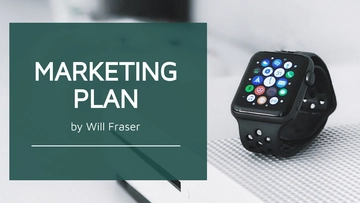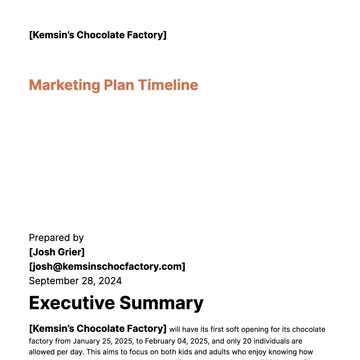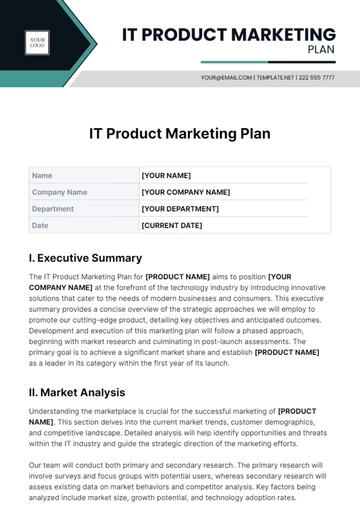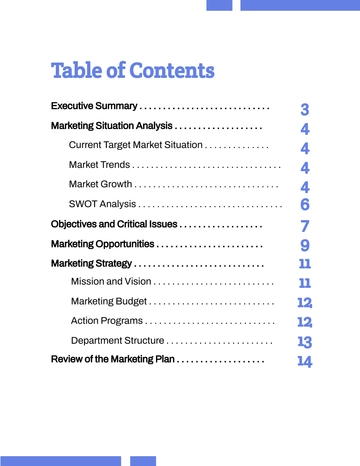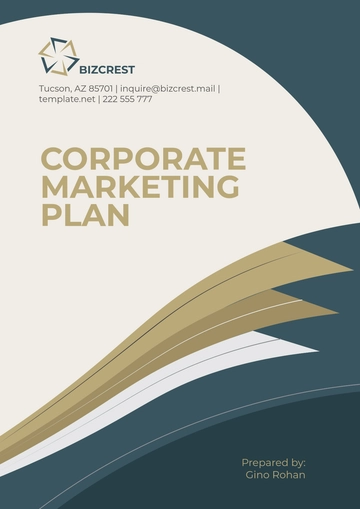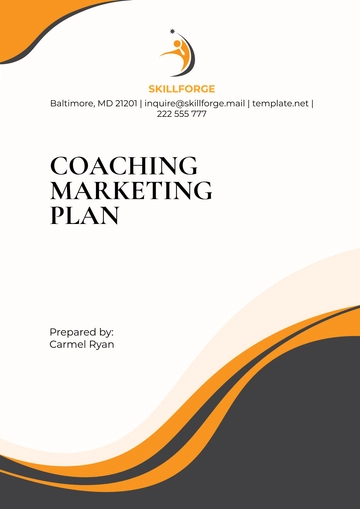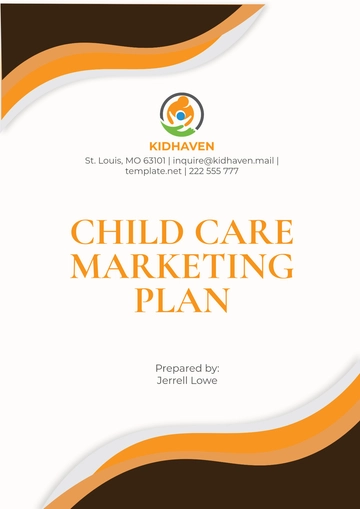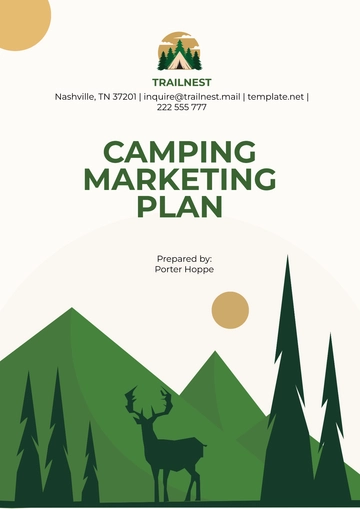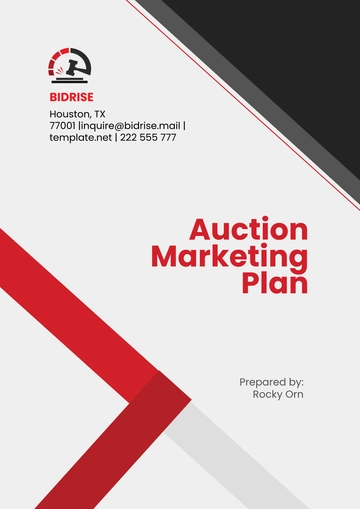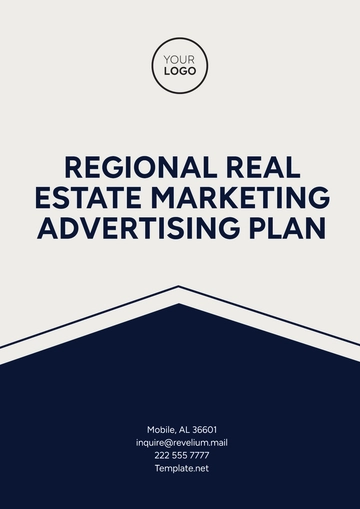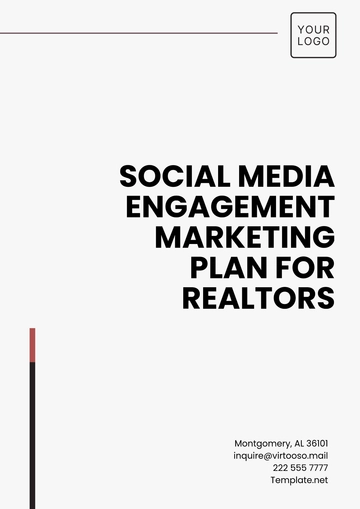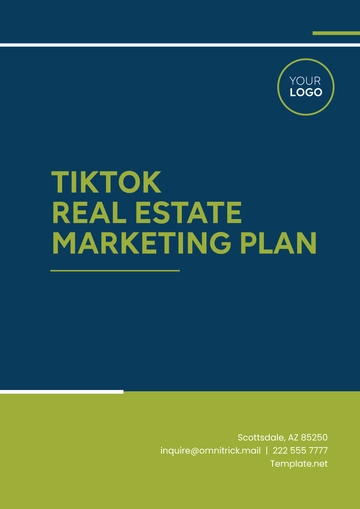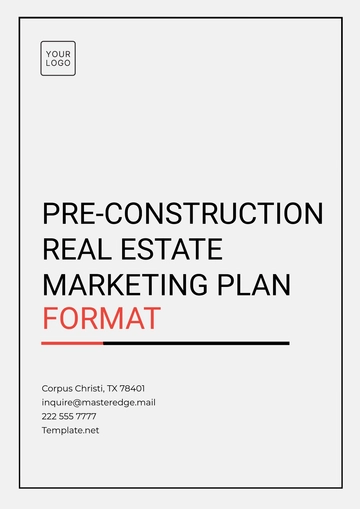Free Social Media Marketing Plan for Daycare Business
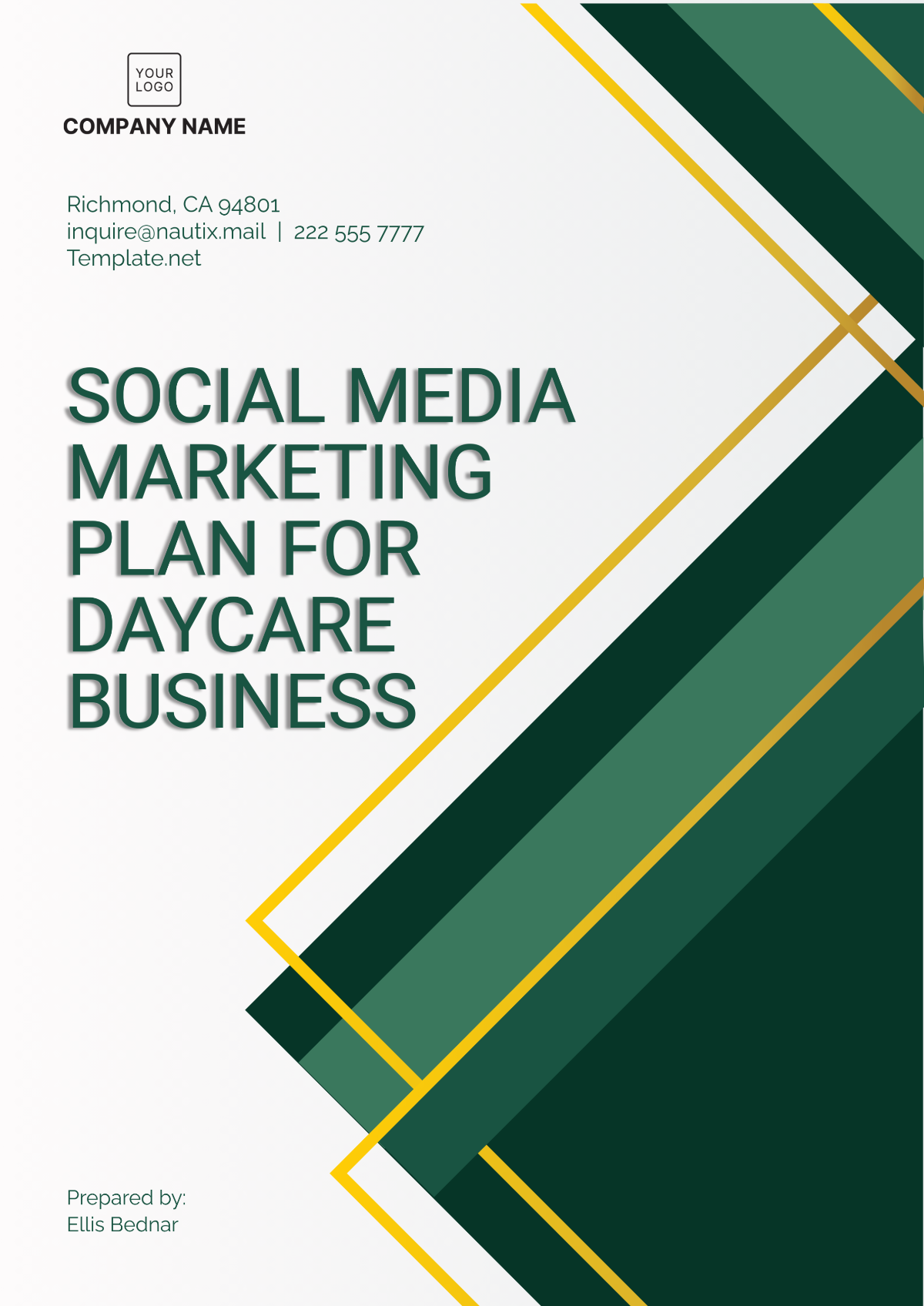
1. Executive Summary
This Social Media Marketing Plan is designed to enhance the online presence of [Your Company Name] and engage with the local community through strategic and targeted social media efforts. By leveraging platforms like Facebook, Instagram, and Twitter, the plan aims to build brand awareness, foster trust, and attract new clients while providing valuable educational content to parents and caregivers.
2. Objectives
The key objectives of this Social Media Marketing Plan are:
Increase Brand Awareness: Reach more local parents and caregivers to establish a stronger presence within the community.
Engage with the Audience: Foster connections with current and prospective clients through regular and relevant content.
Attract New Clients: Use social media ads and promotions to bring in new parents looking for daycare services.
Build Trust and Credibility: Share testimonials, success stories, and informative posts to position the daycare as a trusted resource.
Showcase Daycare Activities: Highlight the daycare's educational and extracurricular activities through photos and videos.
3. Target Audience
The target audience for this Social Media Marketing Plan includes:
Primary Audience: Parents and guardians of young children (0-5 years) who are seeking daycare services in the local area.
Secondary Audience: Local community groups, schools, and organizations interested in child development and parenting tips.
Tertiary Audience: Prospective employees or volunteers who may be interested in joining the daycare team.
4. Social Media Platforms
To achieve the above objectives, the following social media platforms will be utilized:
Facebook: For community engagement, event promotion, and sharing long-form content like parent testimonials and daycare updates.
Instagram: To showcase visually appealing images and videos of daycare activities, staff, and children in a fun and engaging way.
Twitter: For quick updates, tips for parents, and to join conversations about parenting and early childhood education.
LinkedIn (Optional): For professional updates, job postings, and building business relationships with other local services.
5. Content Strategy
The content shared on social media will aim to resonate with parents and caregivers while maintaining a friendly, professional, and informative tone.
Types of content include:
Educational Content: Posts about child development, parenting tips, early education practices, and daycare safety.
Behind-the-Scenes: Photos and videos showcasing daycare activities, crafts, learning sessions, and celebrations.
Client Testimonials: Written or video testimonials from satisfied parents to build credibility and trust.
Promotional Posts: Information about enrollment, special offers, or seasonal events.
Interactive Content: Polls, Q&A sessions, and contests to engage parents and encourage community participation.
User-Generated Content: Encouraging parents to share their experiences or photos of their children at the daycare.
6. Posting Schedule
A consistent and strategic posting schedule will help maintain audience engagement. The plan will include:
Frequency
Facebook: 3-4 posts per week
Instagram: 4-5 posts per week (including stories)
Twitter: 4-6 tweets per week
Timing
Posts will be scheduled for peak engagement times, typically in the morning before parents head to work and in the evening after dinner.
7. Advertising Strategy
Paid advertising on social media will be used to reach a wider audience and attract potential clients. The plan includes:
Facebook Ads: Targeted campaigns for parents in the local area, highlighting daycare services, special promotions, and enrollment information.
Instagram Ads: Visual ads showcasing the daycare environment and activities to attract prospective clients.
Boosted Posts: Boost high-performing organic posts to expand the reach and drive traffic to the daycare’s website or enrollment page.
8. Metrics and Evaluation
To assess the effectiveness of the social media marketing plan, the following metrics will be tracked:
Engagement Rate: Likes, comments, shares, and overall interactions with posts.
Reach and Impressions: The total number of people who see the posts and the frequency of those views.
Lead Generation: The number of inquiries or sign-ups generated through social media channels.
Conversion Rate: The percentage of social media leads that convert to actual clients.
Website Traffic: The amount of traffic driven from social media platforms to the daycare’s website.
These metrics will be reviewed monthly to gauge performance and adjust the strategy as needed.
9. Budget
A budget will be allocated for both organic and paid social media efforts, which may include:
Content Creation Costs: Photography, graphic design, video production.
Advertising Budget: A monthly allocation for Facebook and Instagram ads.
Software Tools: Subscriptions for social media scheduling or analytics tools (e.g., Hootsuite, Buffer).
10. Timeline
The plan will be rolled out over three phases:
Phase 1 (Month 1-2): Establish a baseline social media presence, post regularly, and start engaging with followers. Focus on creating and scheduling high-quality content.
Phase 2 (Month 3-6): Launch paid advertising campaigns and continue posting regularly. Measure and analyze performance metrics.
Phase 3 (Month 6+): Refine the strategy based on insights, adjust content and advertising tactics, and aim for continued growth in followers and leads.
11. Conclusion
This Social Media Marketing Plan is designed to boost the daycare's visibility, engage with its community, and attract new clients. By consistently posting valuable content, leveraging paid ads, and analyzing the results, the daycare can build a strong and trusted online presence that will support business growth and community relationships.
- 100% Customizable, free editor
- Access 1 Million+ Templates, photo’s & graphics
- Download or share as a template
- Click and replace photos, graphics, text, backgrounds
- Resize, crop, AI write & more
- Access advanced editor
The Social Media Marketing Plan for Daycare Business Template from Template.net is fully editable and customizable to fit your daycare’s social media strategy. Featuring sections for content planning, target audience, and goals, you can easily modify the plan to your needs. Editable in our AI Editor Tool, it ensures a professional and streamlined marketing experience.
